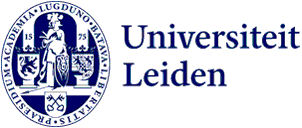Research
Qualitative Empirical Research Methods in Law
This introductory course aims to provide PhD candidates and Pre-PhD students with an understanding of the purpose and appropriate use of the major qualitative research methods. It will help students identify research methods suitable for their concrete research questions.
- Target group
- PhD candidate
- Teachers
- Judith van Uden (PhD Candidate) Katrien Klep (Assistant Professor) Wiebe Ruijtenberg (Postdoc) Amalia Campos Delgado (Assistant professor) Maryla Klajn (Postdoc researcher/lecturer) Roosmarijn van Es (Assistant professor)
- Method
-
Training course
Method
Although qualitative research methods are often identified with the social sciences more generally than with the discipline of law in particular, also lawyers and legal scholars do make use of qualitative research methods. Examples of this type of research are studies that examine people's perception of law and justice, the interactions between different courts, the effects of gender, or legal aid and access to justice. This introductory course will discuss different qualitative methods. It aims to provide students with an understanding of the purpose and appropriate use of the major qualitative research methods and to equip students with the skills to decide whether their research topic requires the use of qualitative research methods, to select the most appropriate research methods.
Mode of instruction
The full course consists of 8 lectures and 3 tutorials. 140 hours (5 ECTS) will be recorded. In all instances, you are expected to actively participate in class and fulfill the assignments. The lectures and tutorials only take place physically in class.
Dates
The course starts in the week of 3 March and lasts until the week of 12 May 2025. You can find the updated schedule here.
Course objectives
Upon completing the course, students will be able to:
- Develop a solid research design that suits the research question at hand;
- Distinguish between qualitative interviewing, focus groups and participant observation, and visual methods;
- Know the difference between case study analysis and discourse analysis;
- Reflect on the strengths and weaknesses of each qualitative research strategy in its ability to answer different types of questions;
- Assess in which circumstances it is best to apply different qualitative research strategies;
- Prepare and conduct different types of qualitative interviews and focus groups.
Compulsory literature
You can find the compulsory literature in the syllabus posted on Brightspace.
Assignments
All assignments are to be handed in through Brightspace 48 hours before the start of the class unless indicated otherwise. In addition, some assignments will have to be printed and taken to class. If this is the case, this is indicated in the description of the assignment.
Registration
Please register here.
Presence
Presence in class is mandatory. If you cannot attend one of the lectures, please email Judith van Uden, the course coordinator, beforehand: j.j.m.van.uden@law.leidenuniv.nl
